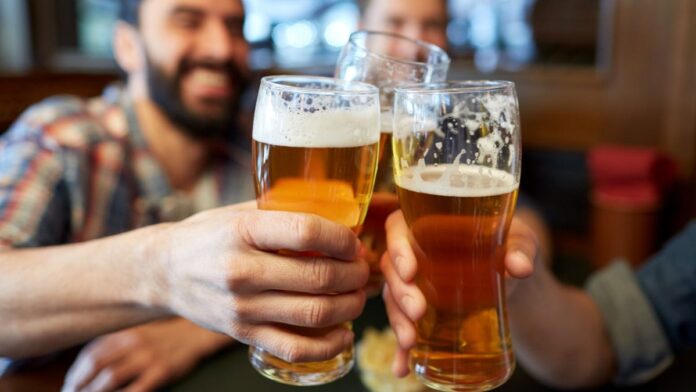[ad_1]
If you’ve ever looked at a bottle of alcohol and wondered what that percentage on the label means, you’re not alone. It’s the ABV of the drink, but if you don’t know what it is, luckily, it’s not difficult to master.
ABV stands for alcohol by volume, and is a measure of how much pure alcohol is in a spirit, beer, or wine. Basically, the higher the ABV percentage, the stronger the drink.
ABV is important for a number of reasons, and it can be valuable to understand even if you’re not a bartender, server, or brewmaster.
ABV is an excellent guide for consumers who want to track their alcohol consumption. Knowing the ABV of a drink can help you pace yourself, avoid overindulgence, and prevent a hangover the next day. The Centers for Disease Control drinking guidelines take ABV into account when it comes to moderate consumption.

According to the CDC, men should have no more than two standard drinks and women should have no more than one per day. But you have to know what a standard drink is, and that includes ABV. For the agency, the standard drinks are:
- Beer: 12 ounces at 5% ABV
- Wine: 5 ounces at 12% ABV
- Malt liquor: 8 ounces at 7% ABV
- Distilled Spirits: 1.5 ounces at 40% ABV
If you’re drinking beer, wine, malt liquor, or spirits with a higher-than-standard ABV, you’ll want to cut back to stay within moderate consumption.
Knowing the ABV allows you to make more informed drinking decisions. If you’re wondering how strong a drink can be or what it will taste like, check out the ABV percentage. Go for lower percentages, or even some great non-alcoholic options, if you want to keep your drinking down.
[ad_2]
